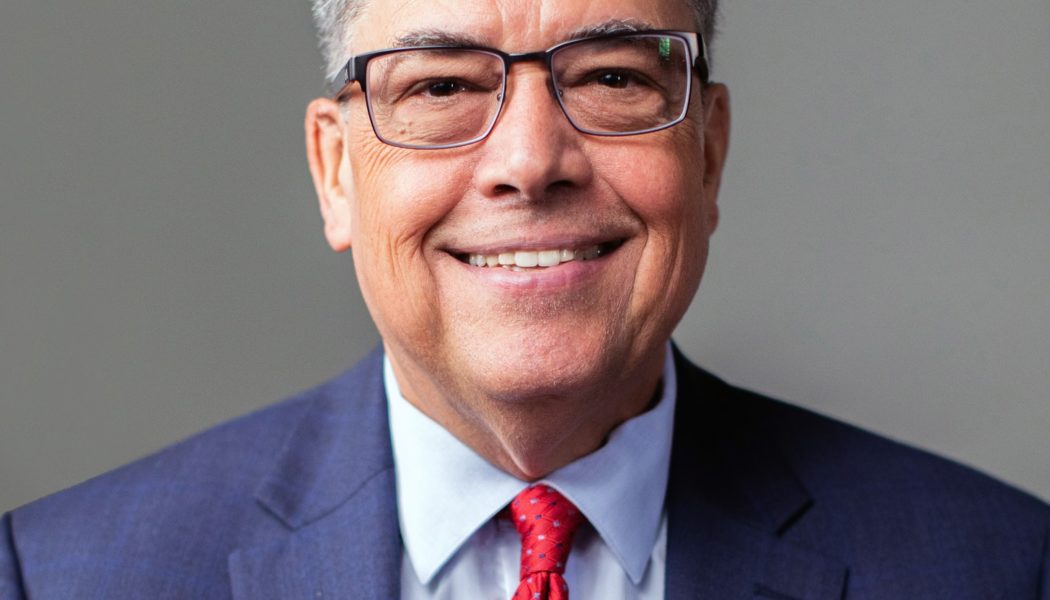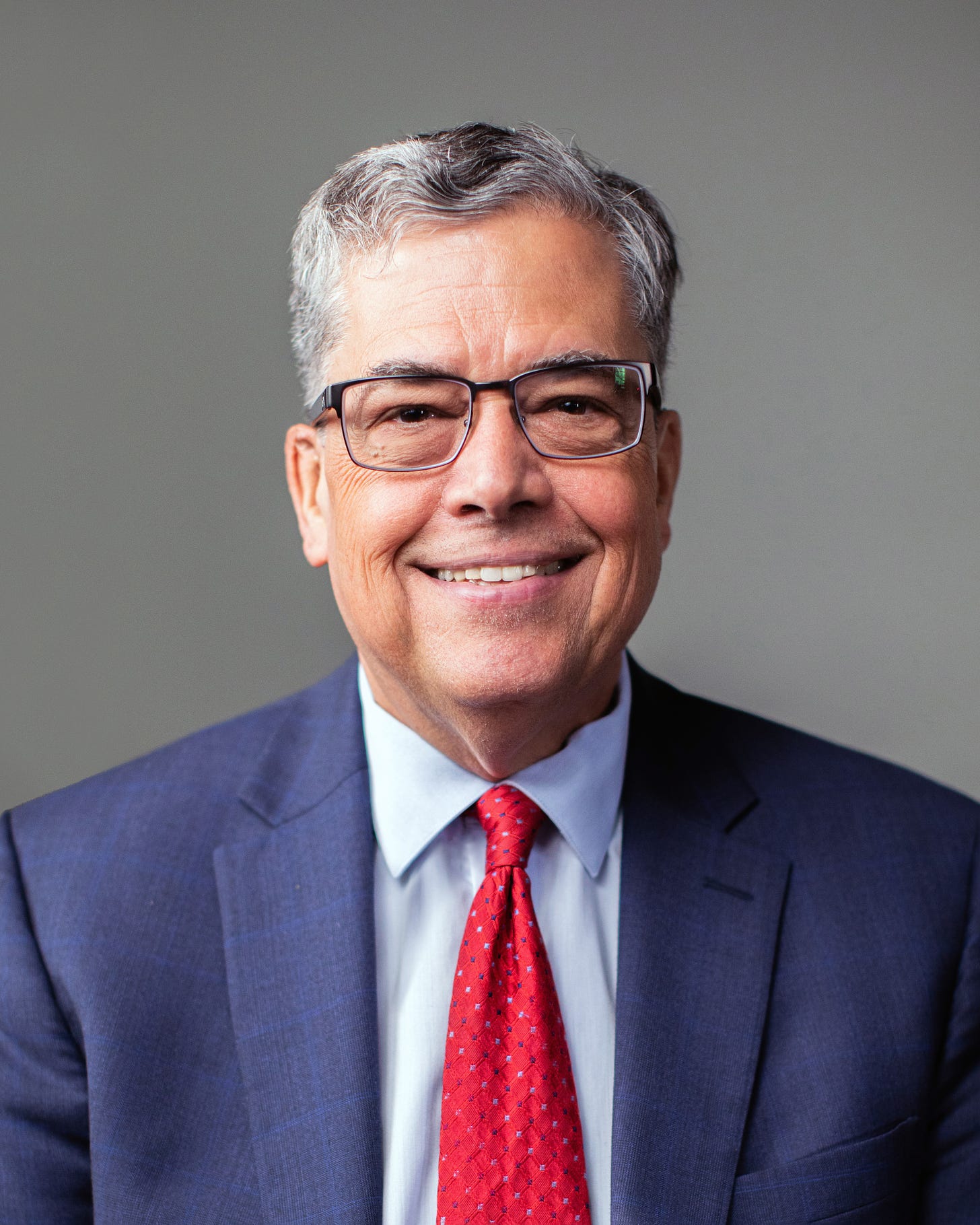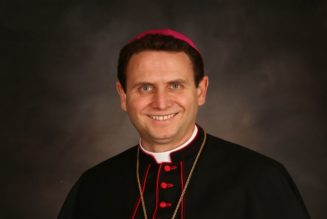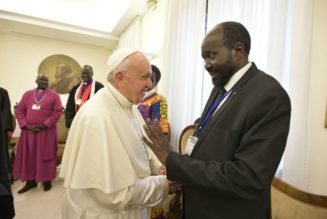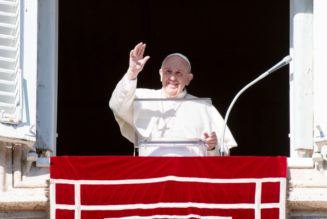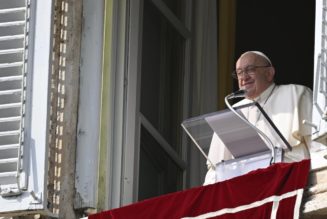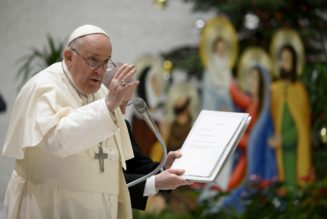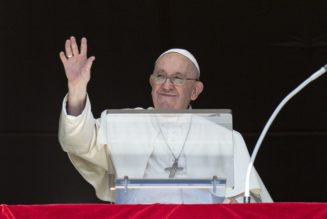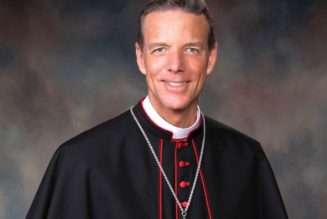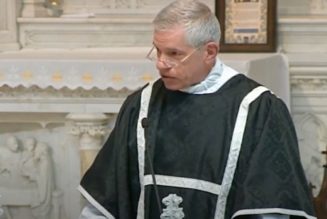The Catholic University of America announced Tuesday the appointment of Peter Kilpatrick, who is now provost at Illinois Institute of Technology, as the university’s 16th president. Kilpatrick will succeed John Garvey, who has led the university since 2011.
Kilpatrick is a chemical engineer who has served as a professor at North Carolina State University, as the dean of engineering at the University of Notre Dame, and as provost at Illinois Institute of Technology.
CUA is a unique Catholic college in the United States, because it was founded by the U.S. bishops — and remains entrusted to their oversight.
Kilpatrick, who will take the helm at CUA in July, talked with The Pillar about his sense of the university’s mission, and his plans for its growth in the years to come.
This interview has been edited for length and clarity.
Dr. Kilpatrick, as you begin this role as CUA’s president, your sense of a Catholic university’s identity is an important factor in how you will lead the university.
What is a Catholic university, as you see it?
That is a question I’ve given a lot of thought to.
For me, a Catholic university is a unique place of higher learning, where we embrace the fusion — the integration — of faith and reason, where we celebrate that there is only one truth about the world and about the human person in the world, and that’s that it all flows from God.
And it’s only possible to do that at a university like a Catholic university or another religious university really authentic to its faith principle.
I think the other important thing about a Catholic university is that you integrate the disciplines because knowledge is not bite-sized pieces. Disciplines, which came about in the late 19th century at the German universities, are not intended to be in isolation. They are intended to be in context of the global society and the society in the culture that you’re in.
And unfortunately, so much of what’s done at many other universities is to silo the disciplines. And that’s not what a Catholic university is about. We’re about integrating the disciplines and putting it all in context. So my understanding of Catholic universities is that they have this unique role to play integrating faith and reason and integrating the disciplines.
What is the goal at a Catholic university? Especially with regard to formation, when the Catholic University of America looks at its graduates, how do you measure success?
Well, Basil Moreau once said that education is the art of bringing a person to completion.
So I think education is all about helping someone discover who they are as a person, and then helping them form themselves — not only intellectually, but spiritually, emotionally, physically.
You don’t educate a disembodied person, you educate a whole person. And so it’s really important to keep all that in mind as we try to deliver our education. And if we’re successful, then we help people discover themselves. And we also help them form themselves for life service to the society.
When the university’s selection committee looked at your resume, what stood out? Why choose Peter Kilpatrick for this job?
I think my whole life has prepared me for this role. I’ve been an academic for 39 years. I’ve served in every conceivable role you could have at a university.
I am an adult Catholic convert, who’s passionately committed to his faith. I have four children and three grandchildren.
I just feel like everything in my life has prepared me for this moment in my life, to serve as the president of Catholic University.
Most of your experience is at secular universities. You have time at Notre Dame, but more experience as a teacher and then an administrator at secular universities.
Do you think there will be a learning curve to lead this Catholic university? What will change in your work because of the Catholicity at CUA?
I spent 10 years at Notre Dame, so it wasn’t a short period of time. It was a decade. And I met many, many Catholic leaders from all over the world when I was at Notre Dame; I dealt with many Catholic issues when I was at Notre Dame, including life issues, and including relationships with the Church.
I actually think that my time at secular universities complemented my time at Notre Dame, because I learned about the business model of the university. I learned about the importance of research. I learned about the challenges of a resource-constrained environment.
So I actually think all of those experiences prepared me really well for this role I’m stepping into.
And in terms of the ecclesial mission of CUA — The Church in the United States is divided in a lot of ways right now. And as the bishops’ university, CUA has an ecclesial role because the bishops in this country have an investment in CUA.
What role does CUA play in the life of the Church, and what role could it play in future?
As the bishops’ university, and as the university that is intended to represent the entirety of Catholicism in the United States, I think CUA has a very special role to play…It’s important that we demonstrate that the university is in the very heart of the Church.
And so you can ask the question, “What does that mean? What does it mean to be in the heart of the Church?”
The way I understand that, the core of the Gospel message is: “Love God, love neighbor, serve humankind and serve the body of Christ.”
And I believe that’s our role here at Catholic University.
CUA is relatively unique in that it has both ecclesiastical faculties and secular faculties — and is thus governed both by ‘Veritatis gaudium’ and ‘Ex corde ecclesiae’.
Is there any aspect of that dual identity which presents a challenge, or which you see as an opportunity in the life of the Church?
Well, I think it would pose a challenge if there was a substantial proportion of the faculty who were opposed to the mission of the university.
But everyone that I’ve spoken to in my time here seems to not only know and understand the mission, but to buy into the mission. And for me, the heart of that mission is the dignity of the human person — the infinite value of the human person.
I was just meeting with my new vice-president for finance [Robert Specter], who is Jewish.
And Rob and I had a conversation about him coming from a different cultural background, and his perspective on the mission of the university. And I thought Rob really articulated it really well, and I immediately liked him as a person.
And so I think the common framework among either the ecclesiastical faculty, secular faculty, faculty who come from a background with no religious upbringing at all, is: “Do I respect you? And do I love you as a person because you’re a human person, and because you have infinite dignity?”
And I find that’s a pretty good platform from which to build a common mission for the university.
So I don’t think it’s going to be a problem. People will say, “Peter, you’re being naive. Come on. Of course there will be challenges.“
I understand that, but I find that a very substantial proportion of the people here understand and buy into the mission.
One missional challenge faced during President John Garvey’s tenure at CUA is that there have been competing ideas even about what respecting human dignity looks like.
An example is a decade-long disagreement about whether the university should officially recognize the CUAllies student group, which says it advocates for ‘equal representation and treatment of LGBTQIA+ students at CUA.’
I suspect that issue will arise again as you begin your term as president. Have you given much thought to what your approach will be?
I have. I have given it a whole lot of thought. And I’m gonna fall back a little bit on Scripture.
In the Gospel, Jesus says that “whoever denies me before men, I also will deny before my Father who is in heaven.”
But he also says to the woman caught in adultery: “Has anyone condemned you?…Neither do I condemn you. So go and sin no more.”
I think that’s a roadmap for how to deal with this thorny issue.
On the one hand, we can’t deny or walk away from Catholic teaching. We can’t do that.
On the other hand, we owe persons of same-sex attraction our love, our affection, we have to honor their dignity and we have to engage them in dialogue so that we understand what their hopes and fear are and how we can help, as I said earlier, bring them to completion as persons.
So I look forward to meeting our gay and lesbian students, engaging them in dialogue, trying to understand exactly where they’re coming from and then judging for myself, how I can help this university move forward on an issue which is troubling to many.
I understand the issue, and I’m looking forward to wrestling with it.
CUA has also been in the headlines recently because of controversy over an icon-style painting in which the figure of Christ resembled George Floyd, which was displayed at the law school. The icon became controversial, it was stolen, and a debate seemed to ensue about how that fit into the mission of CUA.
Have you had much opportunity to talk with people about that, or come to understand how you might engage on this issue?
Only a little bit.
I would find it hard to believe that the icon was publicly displayed in a way [meant] to be offensive. So I don’t think there’s any ill will there.
But I would like to talk to [law school dean] Steve Payne and I would like to talk to the law school faculty to understand where they’re coming from and what their understanding is.
But this is an issue that I hope you can appreciate, as a president-elect who is 92 days from my first day as president, I just don’t really know enough yet to give a considered opinion on this question.
I can appreciate that. But connected to that issue at the law school is a major decision recently announced at CUA, which is to make a change in campus ministry, which will be led now by Dominican friars after decades of leadership from Conventual Franciscans.
I appreciate that you’re still learning the particulars, but it does lead me to be curious about your vision for the spiritual formation aspect of your own job — how your job as president fits into the work of campus ministry, and the Christian formation of students.
One of the things that I know from my experiences at Notre Dame with campus ministry is that you have to meet students where they are — and students come to us from all over the country and all over the world in very different places, emotionally, intellectually, and spiritually. And I think we have to meet them at that place where they’re at.
I experienced campus ministry at Notre Dame in a wonderful way. And I found that our campus ministers there were joyful, they were encouraging, and they were relatable. And when you express the joy of the faith, people get curious, people want to know and understand what you know, and understand why you’re so joyful.
So I look forward to working with our campus ministers here to build that culture of joyfulness and community on campus. And again, this is a delicate thing because students come from such different places. Many of them come from families that may be broken, many of them come from circumstances which are very challenging. Some of them come with great formation, some of them come with no formation and we have to be the Catholic University of America for all of those students.
And I look forward to that.
You are by training a chemical engineer, a STEM guy. And you have written about STEM as it relates to Catholic mission and identity. Some aspects of STEM programs at CUA, I suspect, are already quite strong, but will the STEM fields be an area of focus for you at CUA?
Well, I’ll certainly be focused on STEM with the identity of the university.
You know, one of the missions of the university, and it’s actually spelled out quite clearly and forcefully in both [Veritatis gaudium] and Ex corde ecclesiae is the role of Catholic universities in scientific research, and I would argue in stem research in general.
So I look forward to helping the university continue on its path to be a research intensive university that really serves as an example of research excellence for the Catholic world in terms of the formation of our students.
You know, that we live in a technological world is hard to deny. One of the things our students will need is to understand how to be robot-proof, because you don’t want a robot to put you out of work. And I think there’s a really important role for the institution, and for the disciplines of engineering, science, technology, and math in helping our students really develop that awareness and those talents and abilities, so that they can flourish in a technology-rich world.
So both of those dimensions are important to me, and they’ll be priorities for me and my presidency.
When you talk about the importance of research, it seems to point to a difficult question for some Catholic universities: What does academic freedom mean in a Catholic context, and how is it different from what academic freedom means in the context of a secular university?
How might the faculty expect you’ll think about that issue?
Well, I have full confidence that truth can’t contradict truth.
So I think one can be perfectly free to pursue scientific research in every ethical sense and way.
Now, certainly there are forms of research and there are avenues of inquiry that are problematic ethically. And we certainly can’t allow unethical research to proceed at our university, or [research] that openly violates Catholic teaching.
But other than that I think the faculty should feel perfectly free to pursue any avenue of inquiry, because, again, we can’t contradict truth. And if you really believe that there’s really nothing to fear.
I think we haven’t done enough [research] at Catholic universities. I think universities should be places where people really feel open and empowered to follow the truth, and I’m going to actively encourage that.
According to CUA’s website, it would cost an undergraduate about $70,000 annually to enroll at CUA and live on campus. Whether students borrow that money or pay it, that’s a lot of money. And obviously Catholic schools say they want to manage inflationary tuition. So what is your approach to making CUA an affordable education for Catholics?
Well, certainly at the end of the day, the university has to balance its budget, and the university has to be viable as a business. Having said that, the only path forward for universities of our size is to grow. There is a limiting size below which it is very difficult business-wise to be a comprehensive university.
So I’m going to be very focused on growing our enrollment, growing our revenue streams, diversifying our revenue. Why? Because we need to be healthy financially as a university.
With regard to your specific question, Catholic University offers tremendous both need-based and merit scholarships to its students. And I think we have made education affordable here for a very large percentage for our students.
As you talk about enrollment, I’m reminded that a lot of higher education people are talking right now about the place of standardized tests in admissions decisions, and even about the justice of standardized tests related to admissions. Do you have a perspective on that issue?
You know, standardized tests are not very good predictors of success in college or success in life.
So I think the move away from standardized testing is not a bad thing — I think it’s actually a good thing.
The evidence suggests that a much better indicator is the quality of the education that you took at the high school where you were enrolled. In other words, no matter where you went to high school, whether it was a public high school or a private high school, did you try to avail yourself of the most challenging learning opportunities of that high school? And then the second thing is about how did you perform in those classes?
And those questions are a far better indicator of success than standardized tests. So I’m not a big believer in standardized tests. I think they tend to cloud the issue a little bit.
Thank you, Dr. Kilpatrick, for your time today.
What has been your own preparation like to take on this role? You talked about being prepared over the course of your life — but in the next few months, how do you prepare to start a job like this?
Well, I now have an electronic folder on my hard drive that I think already has several gigabytes of data on it, just about Catholic University. And I fully expect that to grow tremendously over the next several weeks.
I’ve become a student of Catholic University, I’ve tried to absorb as much as I can about the composition of the faculty, and about our budget situation. I’m going to be a student and I’m going to be a sponge, and aim to soak up as much as I can so that I can really hit the ground running when I begin in July.
I am excited to take on this role. And I am absolutely committed to the mission of the Catholic University of America. And I’d be grateful for prayers as I begin.
Ok. Thank you. Finally, CUA has had a number of losing football seasons lately. Can the Cardinals really turn it around, or is this a basketball school?
No comment, I’m afraid. No comment.
Editor’s note: In this report, The Pillar, initially referred to The Catholic University of America as a “pontifical” university. This was an error, and you can read why in this explainer from The Pillar. We should have read our own prior work before we published this, and we apologize.
Join Our Telegram Group : Salvation & Prosperity
